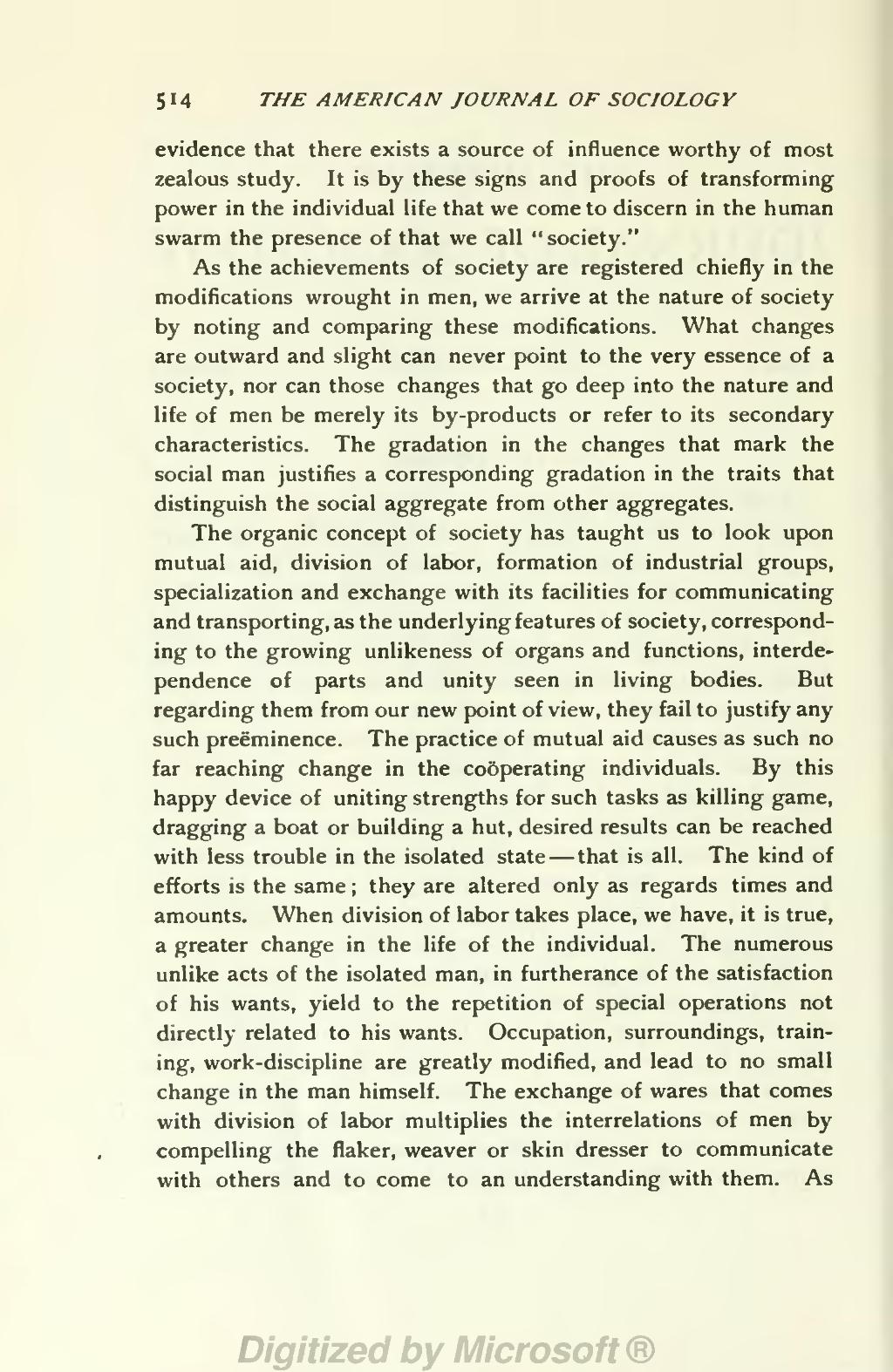evidence that there exists a source of influence worthy of most zealous study. It is by these signs and proofs of transforming power in the individual life that we come to discern in the human swarm the presence of that we call "society."
As the achievements of society are registered chiefly in the modifications wrought in men, we arrive at the nature of society by noting and comparing these modifications. What changes are outward and slight can never point to the very essence of a society, nor can those changes that go deep into the nature and life of men be merely its by-products or refer to its secondary characteristics. The gradation in the changes that mark the social man justifies a corresponding gradation in the traits that distinguish the social aggregate from other aggregates.
The organic concept of society has taught us to look upon mutual aid, division of labor, formation of industrial groups, specialization and exchange with its facilities for communicating and transporting, as the underlying features of society, corresponding to the growing unlikeness of organs and functions, interdependence of parts and unity seen in living bodies. But regarding them from our new point of view, they fail to justify any such preeminence. The practice of mutual aid causes as such no far reaching change in the cooperating individuals. By this happy device of uniting strengths for such tasks as killing game, dragging a boat or building a hut, desired results can be reached with less trouble in the isolated state—that is all. The kind of efforts is the same; they are altered only as regards times and amounts. When division of labor takes place, we have, it is true, a greater change in the life of the individual. The numerous unlike acts of the isolated man, in furtherance of the satisfaction of his wants, yield to the repetition of special operations not directly related to his wants. Occupation, surroundings, training, work-discipline are greatly modified, and lead to no small change in the man himself. The exchange of wares that comes with division of labor multiplies the interrelations of men by compelling the flaker, weaver or skin dresser to communicate with others and to come to an understanding with them. As
